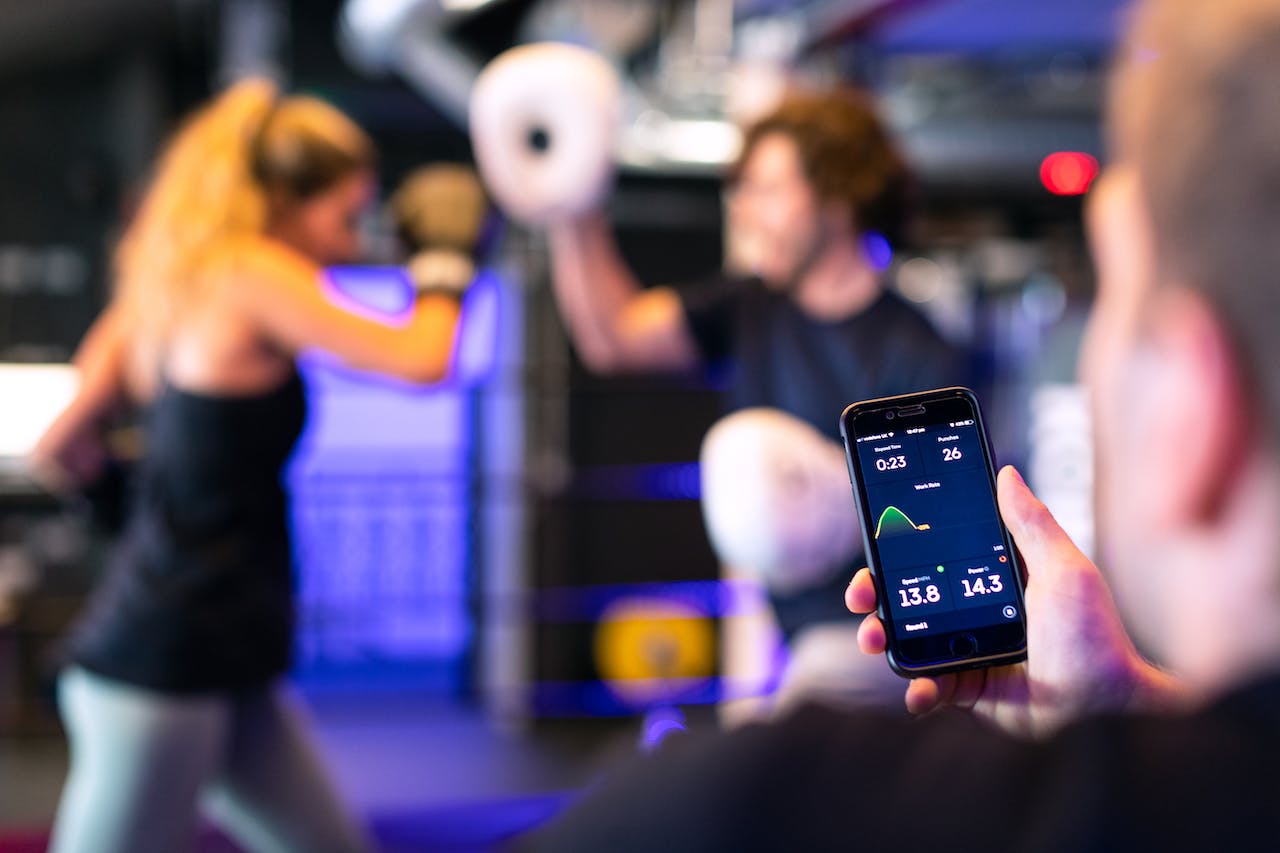Last Updated on January 26, 2024
Artificial Intelligence (AI) has been nothing short of a revolution, reshaping industries across the spectrum. The fitness sector, keen not to lag behind, is undergoing a paradigm shift powered by the prowess of AI. Let’s explore the ways AI is transforming how we approach fitness and wellness in 2024.
1. Tailored Fitness Journeys
AI’s transformative influence on the fitness industry extends to crafting highly personalized training programs. Whether you engage in yoga, martial arts, or pole dancing, AI-powered fitness platforms delve into user data with remarkable precision. Considerations such as body composition, fitness level, medical history, and individual goals form the basis for meticulously tailored workout routines. This AI-driven approach mirrors the guidance of a perceptive personal trainer, fostering a deep understanding of your unique needs. The adaptability of these plans over time not only ensures continual progress but also plays a pivotal role in minimizing the risk of injuries, making fitness journeys more effective and sustainable.
2. Virtual Personal Trainers at Your Fingertips
AI is revolutionizing the fitness industry by introducing virtual personal trainers and coaches directly into our homes. Interactive virtual assistants and chatbots provide real-time guidance, correct form during exercises, suggest workout routines, and offer motivational boosts throughout workouts. The remarkable aspect of this transformation is the accessibility provided, with services available 24/7. This eliminates scheduling conflicts, geographical limitations, and the financial burden of expensive personal training fees. In essence, it signifies the democratization of fitness guidance, making personalized training and support accessible to individuals regardless of location or time constraints.
3. The Intelligent Evolution of Fitness Tracking
Bid farewell to mundane fitness trackers; the era of intelligent devices has dawned. Wearable fitness technology, equipped with advanced AI algorithms, has transcended traditional tracking. It now goes beyond monitoring basic metrics, delving into vital signs, physical activity, sleep patterns, heart rate, calories burned, and more. The integration of artificial intelligence takes this data interpretation to a new level, offering users insightful and invaluable information about their overall health.
The beauty of this intelligent evolution lies in AI’s ability to provide personalized recommendations and optimizations for fitness routines. Acting as a virtual health companion on the wrist, AI not only interprets the collected data but also suggests tweaks and adjustments tailored to individual needs. It’s a transformative shift from passive tracking to active guidance, empowering users to make informed decisions about their well-being.
This beneficial relationship between wearable technology and artificial intelligence signifies a paradigm shift in fitness tracking, elevating it from a mere data collection tool to a proactive health advisor. The result is a more holistic and personalized approach to fitness, where users receive real-time insights and recommendations, ultimately contributing to a healthier and more informed lifestyle.
4. Gamifying Fitness for Fun and Results
AI’s integration into fitness applications brings an exciting dimension through gamification elements. These elements, including challenges, rewards, and virtual competitions, transform mundane workouts into engaging experiences. AI-powered fitness platforms leverage gamification to motivate users, encouraging consistency and pushing them to surpass personal limits. The social fabric within fitness communities is intricately woven by AI algorithms, fostering a supportive environment that not only celebrates individual achievements but also enhances long-term motivation.
As users engage with these gamified platforms, AI’s adaptive capabilities personalize challenges, ensuring they align with individual fitness levels and preferences. This dynamic interaction creates a sense of enjoyment and accomplishment, turning fitness routines into an immersive and sustainable journey.
The synergy of artificial intelligence and gamification isn’t just about making exercise enjoyable; it’s a strategic approach to cultivate lasting fitness habits. By providing a gamified structure that evolves with user progress, AI-driven fitness applications contribute significantly to the broader goal of fostering a healthier and more active lifestyle.
5. Injury Prevention and Rehabilitation
Artificial Intelligence emerges not just as a tool for pushing physical limits but as a vigilant guardian dedicated to keeping individuals safe. Harnessing the power of biomechanical data and real-time movement monitoring, artificial intelligence algorithms play a crucial role in identifying patterns that may lead to injuries. This proactive approach positions AI as a key player in injury prevention.
The significance of Artificial Intelligence becomes even more apparent when considering its role in adjusting exercise techniques to mitigate potential harm. By providing personalized feedback and adapting routines based on individual biomechanics, AI acts as a virtual coach, ensuring users engage in workouts that align with their unique physical capabilities.
Virtual rehabilitation programs, powered by AI, mark a revolutionary stride in aiding individuals on their recovery journey. These programs not only deliver tailored exercises but also track progress meticulously. The dynamic nature of AI allows these programs to adapt and evolve alongside the user’s recovery, providing a personalized and effective rehabilitation experience.
As the fitness industry increasingly adopts AI-driven approaches, there is a collective commitment to minimizing risks associated with physical activity. The integration of AI in injury prevention and rehabilitation signifies a transformative shift towards optimizing recovery outcomes, ensuring individuals can pursue their fitness goals with confidence.
A Word of Caution
As we witness the groundbreaking impact of Artificial Intelligence (AI) in the fitness industry, it’s essential to approach this technological marvel with caution. Artificial Intelligence holds tremendous potential, it comes with its set of limitations that must be acknowledged. Cautionary steps include seeking external advice when necessary and recognizing that AI, powerful as it is, may not always provide the most up-to-date health information. It should be utilized as a tool, complementing human expertise rather than replacing it entirely.
The effectiveness of AI is contingent on informed and judicious use. Despite its capabilities, Artificial Intelligence lacks the nuanced understanding and contextual awareness that human professionals possess. Therefore, users should exercise prudence and not solely rely on AI-driven insights for critical health decisions. The dynamic nature of health and fitness requires a holistic approach that combines the precision of AI with the wisdom of experienced healthcare providers.
In navigating the ever-evolving fitness industry, Artificial Intelligence stands as a beacon of innovation, guiding us towards a future where health and wellness are more personalized than ever. Embracing this change entails staying informed about the capabilities and limitations of AI, fostering a symbiotic relationship between technology and human insight. Let the synergy of AI and wellness redefine your fitness journey, but always with a discerning eye and a commitment to your well-being.







